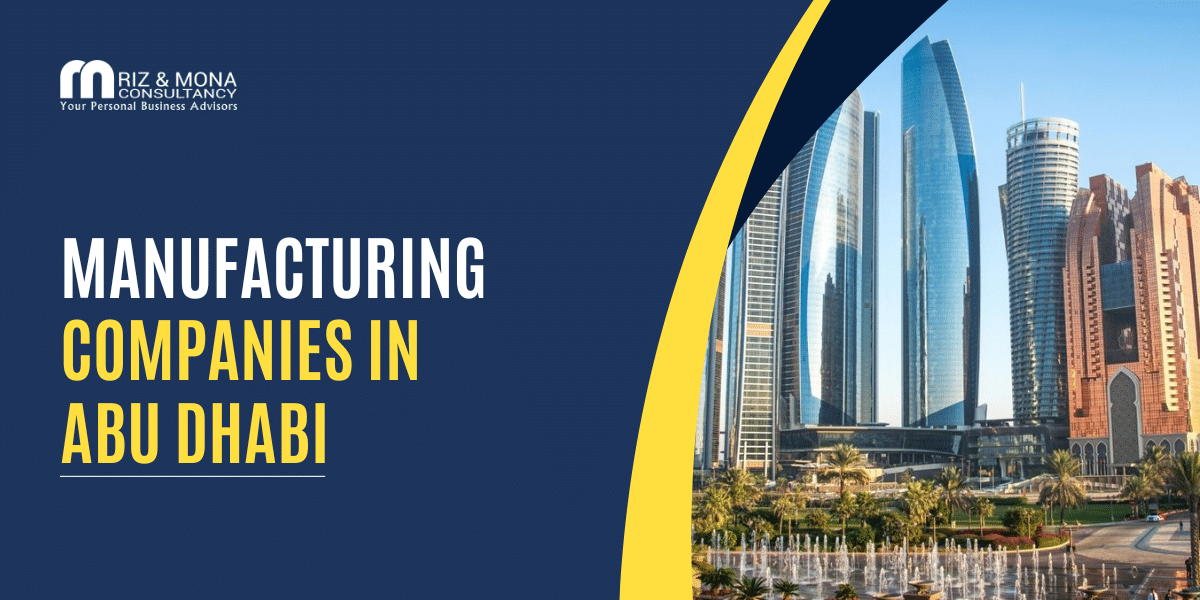Automobile Manufacturing Companies in Abu Dhabi
Abu Dhabi’s automobile manufacturing sector is supported by both local and international players, contributing to the city’s economic diversification and offering high-tech solutions to global markets.
Aluminum Manufacturing Companies in Abu Dhabi
The aluminum manufacturing sector in Abu Dhabi is a critical part of the region’s industrial growth, with companies contributing to key global industries such as automotive, aerospace, and construction.
Food Processing Companies in Abu Dhabi
Abu Dhabi’s food processing industry is evolving rapidly, driven by the UAE’s focus on food security, sustainable production, and increasing consumer demand across the MENA region.
Electronics Manufacturing Companies in Abu Dhabi
The electronics manufacturing sector in Abu Dhabi is expanding as the city invests in advanced technologies, offering significant growth opportunities in areas like industrial automation and electronics components.
Petrochemical Manufacturing Companies in Abu Dhabi
Abu Dhabi’s petrochemical sector is integral to the UAE’s economy, with companies producing key materials for industries ranging from energy to manufacturing and contributing to global supply chains.
Steps to Setting Up a Manufacturing Business in Abu Dhabi
Choose Your Business Structure
Decide between:
-
Free Zone Company: 100% foreign ownership, tax exemptions (e.g., KIZAD, Masdar City).
-
Mainland LLC: Requires a local sponsor.
-
Branch Office: Foreign company presence without separate legal entity.
Register Your Business
Register with:
DED (mainland) or the relevant Free Zone Authority.
Prepare documents like business plans, passports, and proof of address.
Apply for Licenses and Permits
Obtain licenses based on your industry:
-
Environmental Permits for industries with environmental impacts (handled by Abu Dhabi Environment Agency).
Select Your Location
Choose between:
-
-
Free Zones for tax benefits and proximity to infrastructure.
-
Mainland for broader market access, requiring a local partner.
-
Secure Funding and Financial Setup
Explore funding from:
-
-
Khalifa Fund for Enterprise Development.
-
Abu Dhabi Investment Office (ADIO) for financial support.
Open a business bank account and manage finances accordingly.
-
Hire Staff and Obtain Work Visas
Hire skilled labor and secure:
-
-
Work Visas for foreign staff.
-
Sponsorship for mainland businesses.
-
Set Up Your Manufacturing Facility
Focus on:
-
-
Equipment and Technology.
-
Utility Setup: Water, electricity, and waste systems are essential.
-
Comply with Ongoing Regulatory Requirements
Ensure compliance with:
-
Regular Inspections for safety and environmental standards.
-
Tax Filings (if outside a free zone).
-
Employment Laws for staff welfare.
Start Your Business Journey with Our Professional Support!
Opportunities for Entrepreneurs in Abu Dhabi’s Manufacturing Sector
With a growing emphasis on sustainability, Abu Dhabi is investing heavily in green technologies. Entrepreneurs can explore opportunities in eco-friendly manufacturing processes, waste reduction, and renewable energy solutions. The Masdar City free zone, dedicated to clean-tech businesses, offers a conducive environment for sustainable ventures.
Abu Dhabi is embracing Industry 4.0, with significant investments in AI, IoT, and automation. This shift presents entrepreneurs with the opportunity to develop smart factories, advanced robotics, and predictive maintenance solutions that improve efficiency, reduce costs, and drive innovation.
Food security is a key priority for the UAE, and the food processing sector is expanding rapidly. Entrepreneurs can capitalize on opportunities in agritech, organic food production, and innovative packaging solutions, with support from initiatives like Abu Dhabi Farmers Services Centre (ADFSC).
Abu Dhabi’s defense and aerospace industries are seeing significant growth, especially with the establishment of Strata Manufacturing for aerospace components. Entrepreneurs can enter high-tech manufacturing, providing parts and services for military and commercial aircraft, as well as defense equipment.
As part of its environmental goals, Abu Dhabi is focusing on the circular economy, encouraging the reuse and recycling of materials. Entrepreneurs can seize opportunities in waste management, recycling, and the development of products made from recycled materials, in line with the UAE’s National Climate Change Plan.
Challenges Faced by Manufacturing Companies in Abu Dhabi
While Abu Dhabi offers numerous benefits, manufacturing companies also face specific challenges that need to be navigated for success.
-
High Operational Costs: Manufacturing can be expensive in Abu Dhabi due to high costs for utilities, labor, and raw materials, especially outside free zones.
-
Regulatory Complexity: Navigating local and international compliance standards, environmental regulations, and licensing processes can be challenging for new entrants.
-
Competition: The UAE’s manufacturing sector is growing, and competition from established players can make it harder for newcomers to gain a foothold.
-
Talent Acquisition and Retention: While there is access to skilled labor, attracting and retaining qualified professionals in specialized fields can be competitive and costly.
-
Sustainability and Environmental Concerns: Companies must comply with strict environmental regulations, which require investments in sustainable practices, particularly in high-pollution industries.
Benefits of Setting Up a Manufacturing Business in Abu Dhabi
Abu Dhabi offers a range of advantages for businesses looking to set up manufacturing operations, from strategic location to government-backed incentives. Below are the key benefits that make the emirate an attractive destination for manufacturing ventures.
FAQS (Frequently Asked Questions)
What are the licensing requirements for manufacturing businesses in Abu Dhabi?
Manufacturing businesses in Abu Dhabi must obtain an Industrial License or Commercial License from the Department of Economic Development (DED) for mainland companies or the relevant Free Zone Authority for businesses operating in free zones. The license requirements vary based on the type of manufacturing and the location.
How long does it take to set up a manufacturing business in Abu Dhabi?
The process typically takes 2 to 6 weeks, depending on the complexity of the business, whether it’s in a free zone or mainland, and the readiness of the required documents. Setting up in a free zone usually involves a quicker process compared to mainland businesses, which may require additional steps like local sponsorship agreements.
Are there any specific environmental regulations for manufacturing businesses in Abu Dhabi?
Yes, manufacturing businesses in Abu Dhabi must comply with environmental regulations set by the Abu Dhabi Environment Agency (EAD). This includes adhering to sustainability standards, waste management policies, and minimizing emissions, especially for industries such as petrochemicals and heavy manufacturing.
What are the key sectors driving manufacturing growth in Abu Dhabi?
Key sectors include automobile production, aluminum, food processing, electronics, and petrochemicals. These industries are seeing growth due to both government investment and strategic initiatives like the Abu Dhabi Industrial Strategy, which focuses on diversifying the economy.
How do I recruit skilled workers for my manufacturing business in Abu Dhabi?
Abu Dhabi offers a diverse talent pool, with recruitment through local recruitment agencies, online job portals, and partnerships with universities like Khalifa University and Masdar Institute. Additionally, companies can hire expatriates by securing work permits through the Ministry of Human Resources and Emiratisation (MOHRE).















